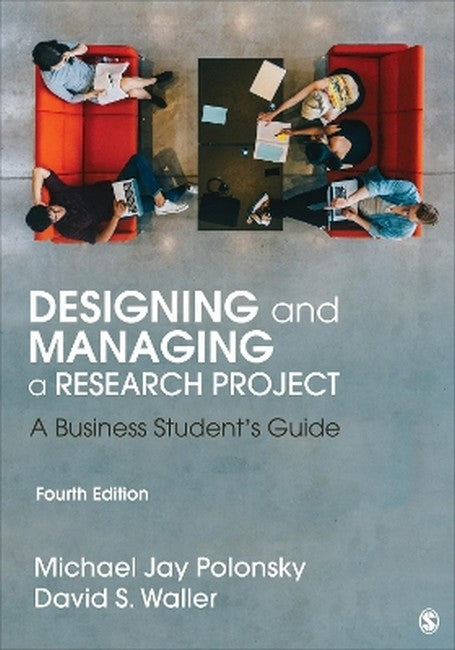Michael Jay Polonsky is an Alfred Deakin Professor and Chair in the Department of Marketing in Deakin Business School. He received his PhD from the Australian Catholic University in 1999. Michael has taught at a number of Australian Universities, as well as into their international programs in China, Malaysia and Singapore. He specialises in teaching business marketing, marketing strategy, and environmental marketing. His research focuses on blood donation, environmental, social and ethical issues in marketing and management, and stakeholder theory. He has published over 135 journal articles in over 70 different academic journals, as well as published numerous conference papers and book chapters. David S. Waller (Ph.D) is a Senior Lecturer in Marketing at the University of Technology Sydney, Australia. David was born and raised in Sydney and, after working in the banking and film industries, taught at a number of universities in Australia, including the University of Newcastle, the University of New South Wales, and Charles Sturt University. David has a Bachelor of Arts from the University of Sydney, a Master of Commerce from the University of New South Wales, and a Ph.D from the University of Newcastle. His research interests include advertising agencies, agency- client relationships, controversial advertising, international advertising, and marketing education. David has published a wide range of journal articles, including the Journal of Advertising, Journal of Advertising Research, European Journal of Marketing, and Journal of Business Ethics, primarily relating to advertising and marketing communication, and is a regular presenter at academic conferences. He has also authored/co-authored a number of university-level textbooks and workbooks which are used in several countries.
Request Academic Copy
Please copy the ISBN for submitting review copy form
Description
Preface Acknowledgments PART I. THE FOUNDATIONS CHAPTER 1. Introduction What Is Research? How a Research Project Fits Within Your Business Education Overview of the Book Online Support Materials Case Study Chapter Questions References CHAPTER 2. Choosing a Topic Has the Topic Been Assigned? Steps in Choosing a Topic Project Checklist Case Study Chapter Questions References CHAPTER 3. The Role of the Supervisor Understanding Your Supervisor What Is the Role of a Supervisor? Selecting a Supervisor Other Supervisor Arrangements Ground Rules and Expectations Conclusion Project Checklist Case Study Chapter Questions References CHAPTER 4. Group Work, Group Dynamics, and the Role of Conflict The Group Work Process Why Assignments Use Groups The Complexity of Group Work Group Work and Conflict Positive and Negative Conflict General Causes of Conflict Conflict Stimulation Managing Conflict Conclusion Project Checklist Case Study Chapter Questions References CHAPTER 5. Ethical Considerations What Is Human Intervention? Codes of Ethical Conduct/Practice Ethical Philosophies Ethical Issues to Consider Technology Issues Conclusion Project Checklist Case Study Chapter Questions References PART II. UNDERTAKING THE RESEARCH CHAPTER 6. Planning the Research Project Importance of Planning The Research Process The Research Proposal Managing the Research Process Budgeting Conclusion Project Checklist Case Study Chapter Questions References CHAPTER 7. Literature Review What Is a Literature Review? How Can Literature Be Used? Where to Obtain Literature How to Write a Literature Review Referencing Managing Your References Project Checklist Case Study Chapter Questions References CHAPTER 8. Data Gathering Factors to Evaluate Data-Gathering Methods Types of Research Data Secondary Data Primary Data Sampling Methods Research Errors Conclusion Project Checklist Case Study Chapter Questions Appendix 8.1: Statistical Agencies that Provide for Up-to-date Demographics and Country Data References CHAPTER 9. Qualitative Data Collection and Issues in Analysis Qualitative Data Collection Methods Implementation Analysis and Interpretation Conclusion Project Checklist Case Study Chapter Questions References Further Reading CHAPTER 10. Quantitative Data Analysis Hypotheses, Errors, and Significance Basic Analysis Basic Associations Basic Causal Relationship Introducing Advanced Techniques Conclusion Project Checklist Glossary Case Study Chapter Questions References Further Reading PART III. COMMUNICATING THE RESULTS CHAPTER 11. Presenting the Results Ways to Present Research Findings Numerical Tables APA Style Charts and Graphs Pictures Maps Quotations Reporting Statistical Results Conclusion Project Checklist Case Study Chapter Questions References CHAPTER 12. Identifying the Implications and Establishing Recommendations Describing the Results Discussion and Interpretation Research Implications Recommendation Guidelines Limitations Future Research Project Checklist Case Study Chapter Questions References CHAPTER 13. Writing the Report Written Communication When to Write? Types of Reports Structure of a Project Report Conclusion Project Checklist Case Study Chapter Questions References CHAPTER 14. Oral Presentations Before the Presentation The Presentation Wrapping Up Groups and Group Members in Presentations Conclusion Project Checklist Case Study Chapter Questions References CHAPTER 15. Concluding Remarks Some Final Hints for Those Undertaking a Project Case Study (Epilogue) About the Authors Index

